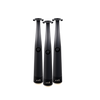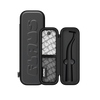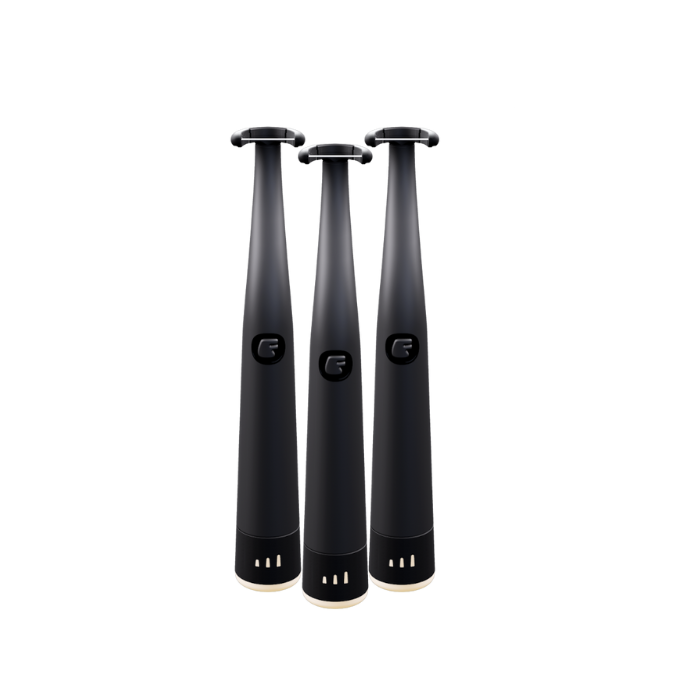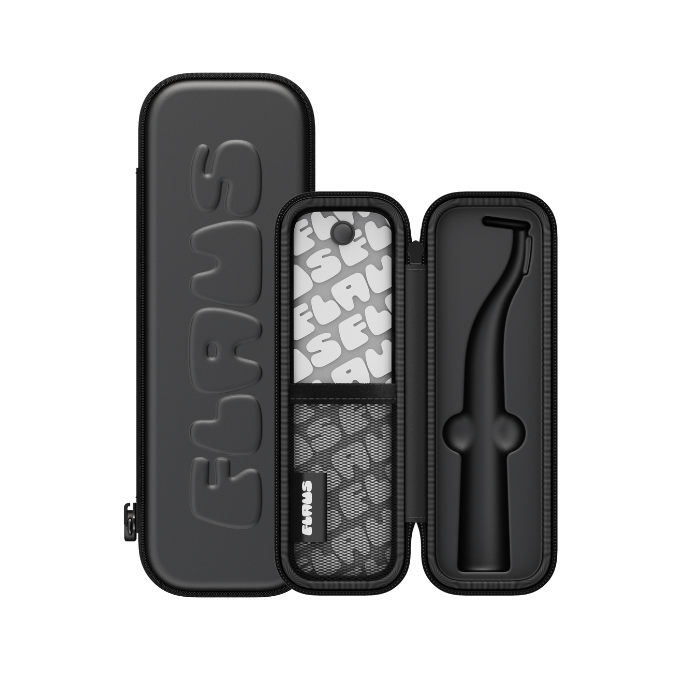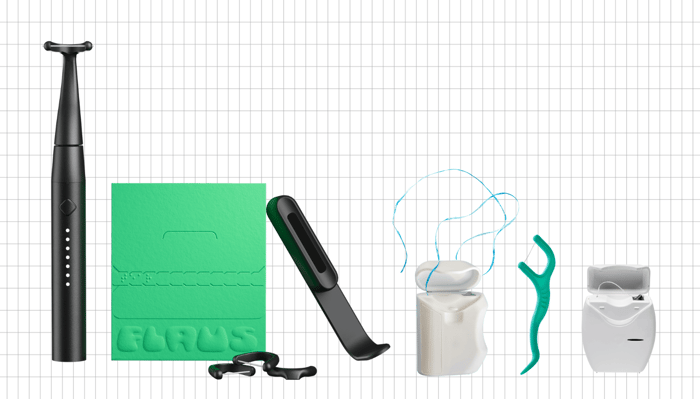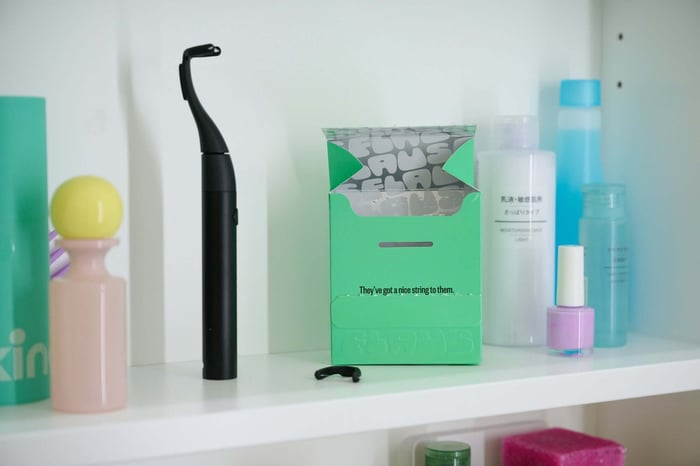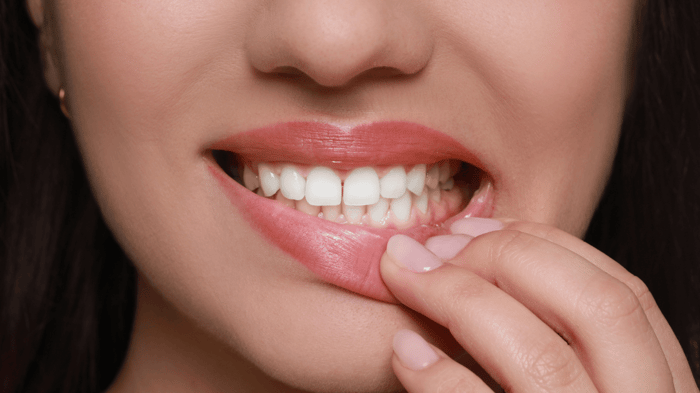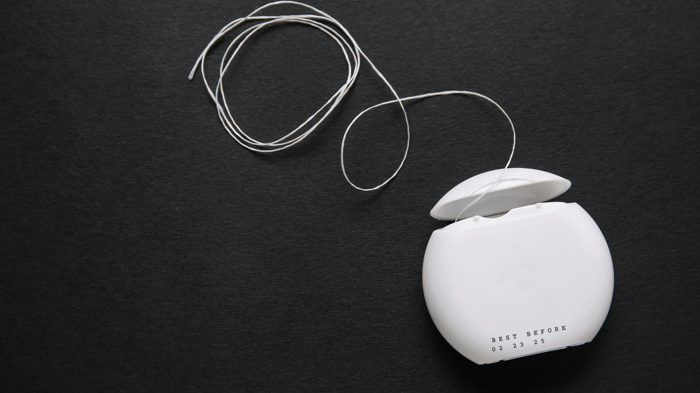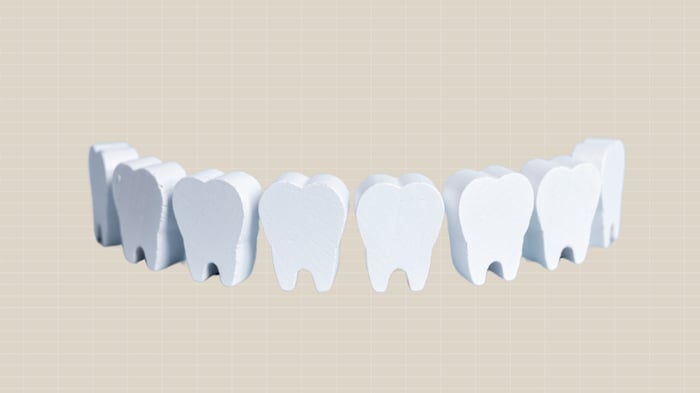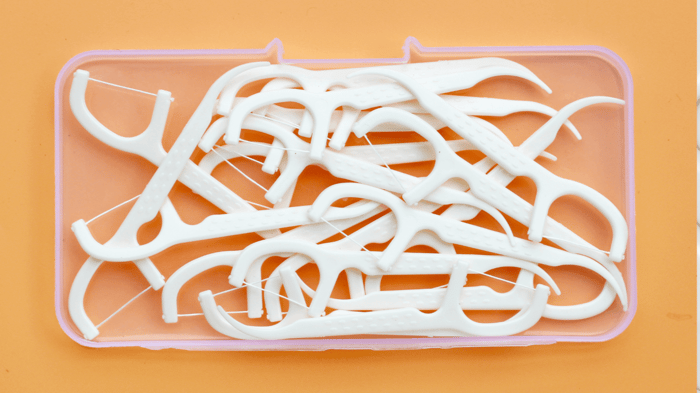As we're sure you know - around here, we think of flossing as the MVP of oral hygiene! While brushing your teeth is crucial, flossing swoops in to save the day by banishing the sneaky plaque hiding between your teeth.
But with so many floss options out there, how do you pick the best one for you? Ask, and you shall receive - here is a list of available floss types and who they might best work for!
Why Should I Floss?
Before diving into the best floss options available, let's quickly recap why flossing is essential to maintaining a healthy smile (and a healthy bod)!
Think of flossing and brushing as two best friends who want to do everything together. Brushing your teeth helps clean 60% of your teeth surfaces, while floss takes care of the remaining 40% of your teeth - reaching the tight spaces where your toothbrush bristles can't go. By removing plaque and food particles, flossing helps prevent cavities, gum disease, bad breath, and even more severe conditions like strokes, diabetes, and heart disease (if you want to know more about this - head over to our 6 Benefits of Flossing article)!
What Floss Type Is Best?
When selecting the best floss for your teeth, there are several factors to consider. Factors like how tight your teeth are, how sensitive your gums are, and if you have any restrictions or allergies to ingredients will all play a part in finding the best floss for your teeth!
To us - that means a floss that is both gentle on your gums and is shred-resistant (floss is suppose to help you get things *out* of your teeth, not shred and get stuck *in* your teeth). So, how do you find that magical floss? We've got you covered!
Let's take a look at the floss types available to us!
Floss Type #1: Nylon Floss
Nylon floss, or multifilament floss, is a popular choice among individuals for its effectiveness and affordability. Let's delve into the benefits and potential detriments of using nylon floss.
Benefits of Nylon Floss
Effective Plaque Removal: Nylon floss consists of multiple strands of nylon fibers woven together, creating a string that effectively removes plaque and food particles between the teeth and the gumline. Its ability to glide smoothly between teeth allows for thorough cleaning and helps maintain optimal oral hygiene.
Versatility: Nylon floss is available in various widths, such as thin, regular, and thick. This versatility allows individuals to choose the thickness that best suits their oral care needs and the spaces between their teeth. Thinner floss is ideal for tight spaces, while thicker floss provides durability for those with more substantial gaps between their teeth.
Waxed and Unwaxed Options: Nylon floss is available in waxed and unwaxed versions. Waxed floss has a thin coating that glides more easily between teeth, while unwaxed floss provides more grip. The choice between waxed and unwaxed floss comes down to personal preference and comfort level during flossing.
Disadvantages of Nylon Floss
Potential for Shredding: One potential drawback of nylon floss is that it can occasionally shred or fray, particularly when used forcefully or in tight spaces. Shredding can be frustrating and may leave behind small strands of floss, which can be bothersome. However, using proper flossing techniques, such as gentle back-and-forth motions, can minimize the risk of shredding.
Sensitivity: Some individuals with sensitive gums or teeth may find nylon floss slightly abrasive or irritating. If you experience discomfort while flossing with nylon floss, you should try alternative floss options, such as PTFE floss or dental tape, which may provide a smoother glide.
Floss Type #2: PTFE Floss
PTFE (polytetrafluoroethylene - say that three times fast- floss), often called "glide" floss, offers its own benefits and potential detriments. Let's explore them in detail.
Benefits of PTFE Floss
Smooth Glide: PTFE floss is made from a single strand of monofilament PTFE material, which provides an exceptionally smooth glide between teeth. Its non-stick properties make it less likely to catch or fray, offering a gentle and comfortable flossing experience.
Effective Plaque Removal: The smooth texture of PTFE floss allows it to slide easily into tight spaces, effectively removing plaque and debris from between teeth and along the gumline. Its ability to navigate around dental work, such as braces, bridges, or dental implants, makes it an excellent choice for individuals with such oral care needs.
Gentle on Gums: PTFE floss is often considered gentler on gums compared to some other types of floss. Its smooth surface reduces the likelihood of causing irritation or discomfort, making it suitable for individuals with sensitive gums or those prone to gum sensitivity.
Shredding Resistance: PTFE floss is less prone to shredding or fraying than traditional nylon floss. This quality ensures that the floss remains intact during use, minimizing the frustration of dealing with tiny strands of floss.
Suitable for Tight Spaces: If you have closely spaced teeth or areas with tight contact points, PTFE floss' thin and flexible structure allows it to maneuver through these spaces with ease, ensuring effective cleaning.
Disadvantages of PTFE Floss
Cost: PTFE floss might be slightly more expensive than traditional nylon floss. Additionally, it may not be as widely available in stores as nylon floss.
Floss Type #3: Dental Tape
Dental tape is a type of dental floss that differs from traditional floss in its design and characteristics. Let's explore the benefits and potential detriments of using dental tape.
Benefits of Dental Tape
Wider Cleaning Surface: Dental tape is broader and flatter compared to traditional floss, providing a wider cleaning surface. This feature allows for more efficient removal of plaque and food particles from between the teeth and along the gumline, especially in areas with larger gaps or wider spaces.
Suitable for Wide Spaces: Dental tape can be particularly beneficial if you have wider spaces between your teeth or gaps due to missing teeth. Its broader profile helps ensure thorough cleaning in these areas, effectively removing debris and promoting optimal oral hygiene.
Easy to Handle: The flat and wide structure of dental tape makes it easier to grip and maneuver. It provides better control and stability during flossing, particularly for individuals with limited dexterity or those who find traditional flossing techniques challenging.
Effective Plaque Removal: Dental tape can effectively remove plaque between teeth. Dental tape is wider and flatter compared to traditional floss. Its design allows it to slide easily between the teeth and effectively clean the surfaces where plaque and food particles accumulate.
Disadvantages of Dental Tape
Limited Suitability for Tight Spaces: While dental tape is excellent for wide spaces, there may be better options for individuals with closely spaced teeth or areas with very tight contact points. Its wider profile may make it more challenging to navigate through these spaces, potentially leading to inadequate plaque removal.
Electric Flossers
Electric flossers, like Flaus, help to make flossing your teeth as quick and easy as brushing your teeth! With an ergonomic handle and sonic vibrations, electric flossers help to get floss into tight spaces.
Electric flossers:
- Makes flossing easy - with 10,000 sonic vibrations per minute floss
- Keeps fingers out of mouth - no more nasty germs and cutting off circulation with dental floss
- Reduces Eco Impact - all the floss ever used still exists on earth today (we know - ugh) - Flaus uses 95% less floss and is made with recyclable plastic
- Saves Time - floss up to 5x faster than traditional string floss
- Saves money - flausing daily can save you $$$ in dental bills later
Flaus uses a PTFE floss and the 10,000 sonic vibrations per minute help to get the floss in and out of tight spaces between your teeth! Flaus might be a great option if you're looking for a comfortable flossing experience!
Conclusion
Choosing the best floss is just the beginning! To get the most out of your flossing routine, make sure you're flossing daily, being gentle on your gums, and being consistent!
Each mouth is different, and our best advice is to learn what works for you with some trial and error!
If you have super tight teeth - nylon floss might not be the best fit for you, as it may rip or get stuck more easily. If you have sensitive gums, a PTFE floss might be a better choice, as it's less harsh against your gums.
Every mouth is like a fingerprint - each is unique! We encourage you to find the floss that is right for you! Now that you know a bit more about what floss might be a good fit for your teeth - let's talk about how you can make flossing easier!
If you have any questions on what floss type works best for you (all mouths are different), we advise contacting your dentist's office.


